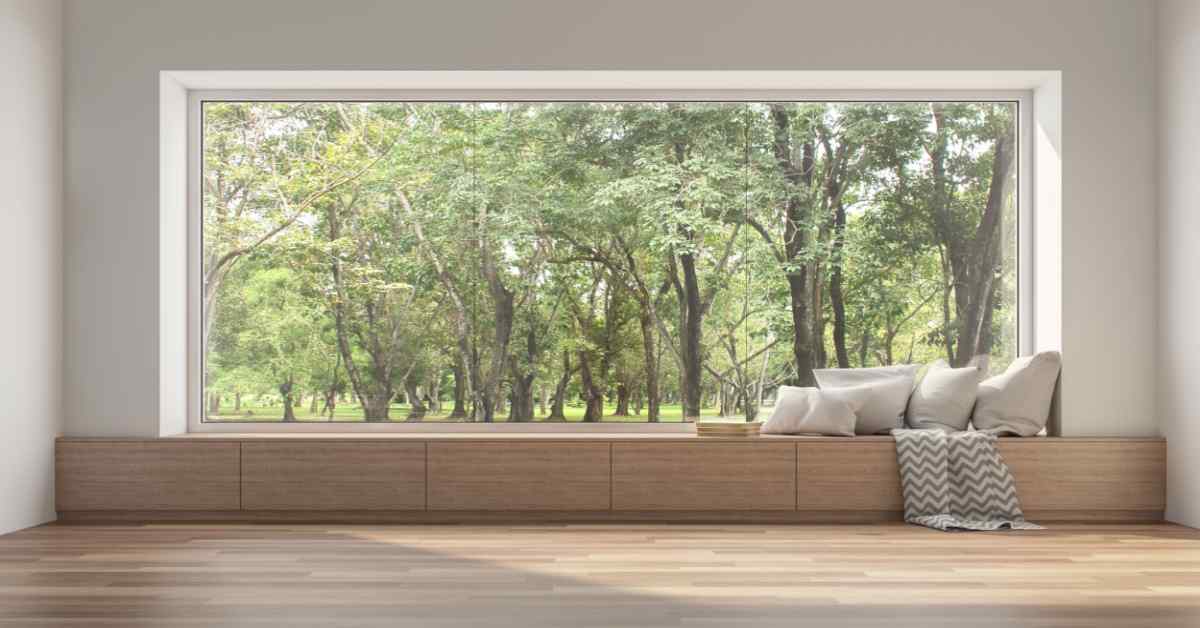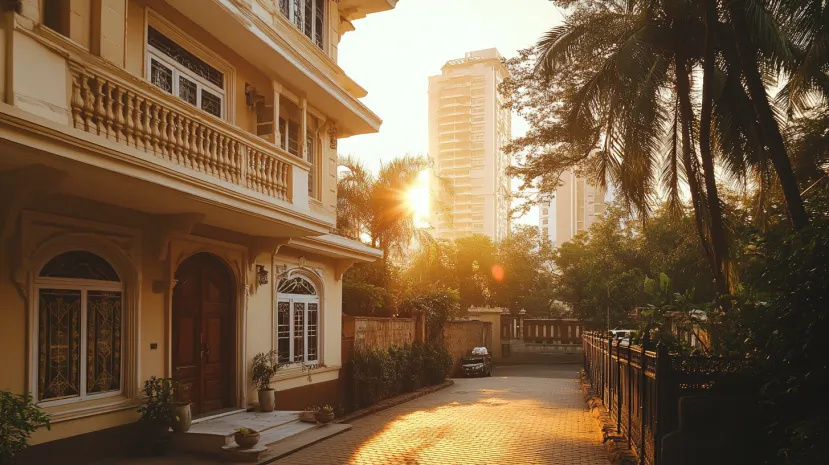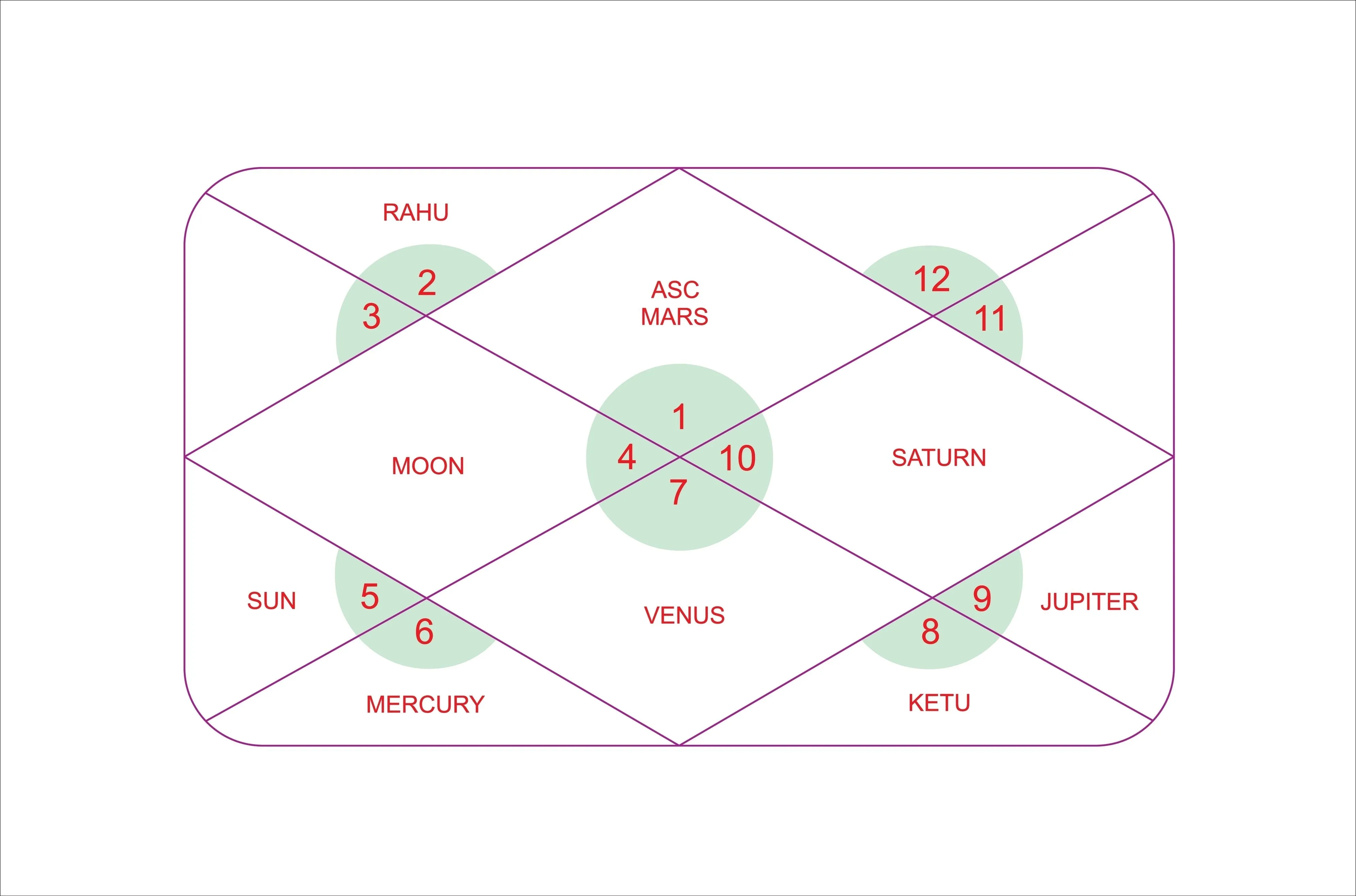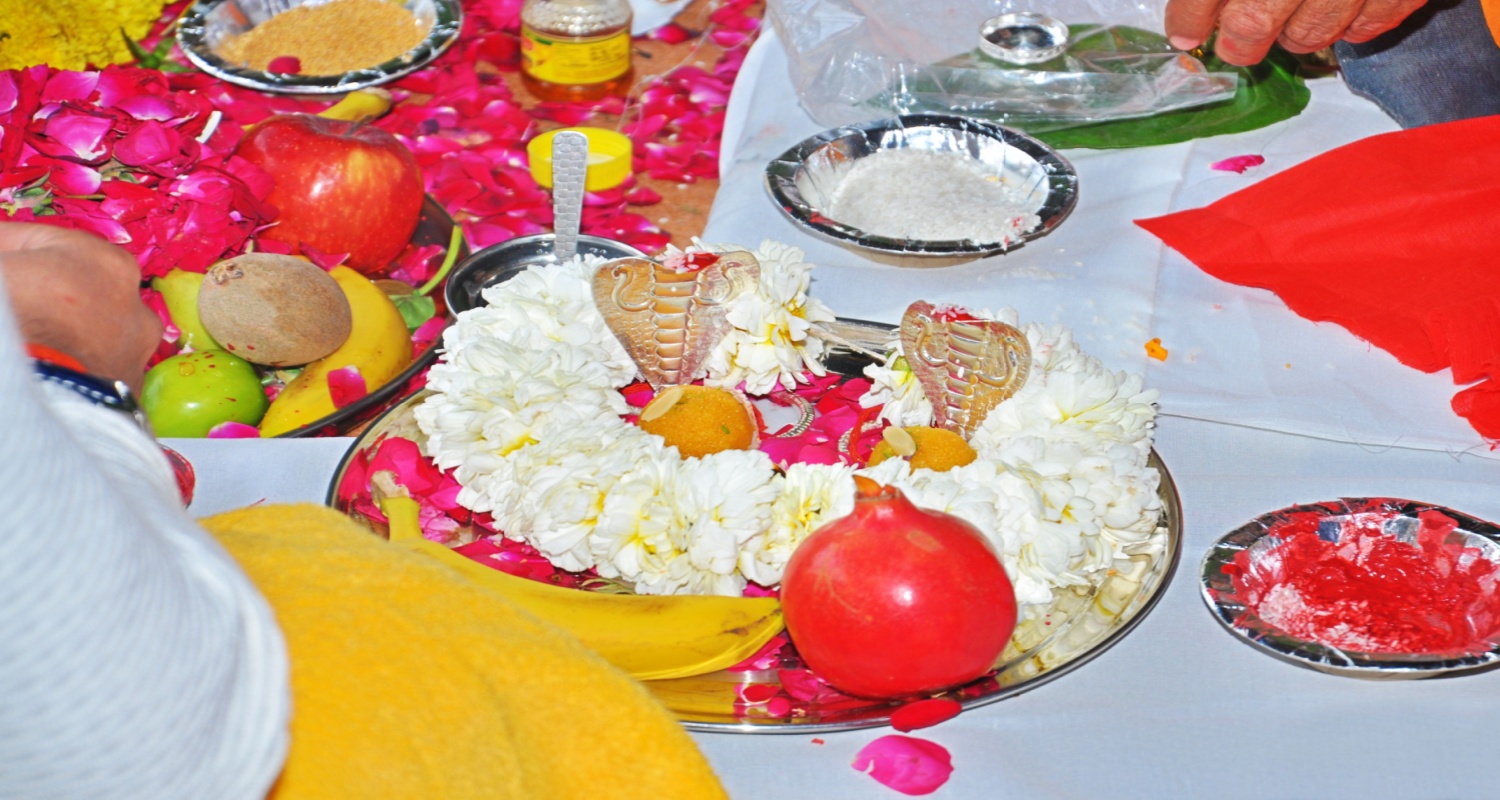Table of Contents
Quality Service Guarantee Or Painting Free

Get a rental agreement with doorstep delivery

Find the BEST deals and get unbelievable DISCOUNTS directly from builders!

5-Star rated painters, premium paints and services at the BEST PRICES!
Loved what you read? Share it with others!

Vastu for Windows: A Comprehensive Guide for Homeowners
Table of Contents
Vastu Shastra is an ancient Indian science of architecture and design that seeks to align buildings with the laws of nature for the well-being and prosperity of the inhabitants. It is based on the principles of Hinduism and considers factors such as direction, orientation, and placement to create harmony and balance.
Windows play a crucial role in Vastu Shastra as they are considered the eyes of a building and the source of natural light and air. Proper placement of windows is important for the flow of positive energy into the building.
Windows facing the east and north are considered auspicious and bring in positive energy, while windows facing the south and west are considered inauspicious and should be minimized. The number and size of windows should be proportionate to the room to maintain balance and harmony. Let’s take a look at some more important Vastu for windows guidelines and try to implement the best practises for our homes.
Quality Service Guarantee Or Painting Free

Get a rental agreement with doorstep delivery

Find the BEST deals and get unbelievable DISCOUNTS directly from builders!

5-Star rated painters, premium paints and services at the BEST PRICES!
Position of Doors and Windows as per Vastu
The position of doors and windows in a building is considered very important in Vastu Shastra. The direction in which they face can greatly impact the flow of energy into the building and affect the health, prosperity, and happiness of the inhabitants.
The ideal direction for windows in different rooms as per Vastu Shastra are:
- Kitchen: Windows in the kitchen should face east or north.
- Bedroom: Windows in the bedroom should face east.
- Bathroom: Windows in the bathroom should face north or east.
- Living Room: Windows in the living room should face east or north.
- Study Room: Windows in the study room should face east or north.
As for doors, the main entrance should face north, east or northeast, as these directions are considered to bring positive energy into the building. The direction of the doors leading to the different rooms within the building should also be considered to ensure the flow of positive energy.
It's worth noting that these are general guidelines, and other factors such as the location and environment of the building should also be considered. However, following the principles of Vastu Shastra can bring balance, harmony, and positive energy into the building and enhance the well-being of its inhabitants.
Ideal Number of Windows as per Vastu
The ideal number of windows in a house as per Vastu Shastra depends on various factors such as the size of the room, the direction in which the room faces, and the purpose of the room.
As a general guideline, the number of windows in a room should be proportionate to the size of the room, with larger rooms having more windows than smaller rooms. The direction of the windows is also important, with windows facing the east and north considered the most auspicious and bringing in the most positive energy.
In addition to these factors, the purpose of the room can also impact the number of windows. For example, a bathroom may require only one small window for ventilation, while a living room may require more windows to let in natural light.
In conclusion, while there is no set ideal number of windows in a house, the number and placement of windows should be considered about the size and purpose of each room, and in accordance with the principles of Vastu Shastra to ensure balance and harmony in the building.
Factors affecting the Size of Windows as Per Vastu and Engineering
As per Vastu Shastra, the ideal size of windows in different rooms of a house varies. Generally, it is recommended to have larger windows in the living room and bedrooms for good ventilation and light, while smaller windows are preferred for bathrooms and kitchens for privacy.
From an engineering standpoint, the size of windows is affected by several factors including:
- Building codes and regulations - Building codes specify minimum window sizes for emergency egress and natural light requirements.
- Climate - The size of windows should be appropriate for the local climate, taking into account the need for insulation and protection from the elements.
- Energy efficiency - The size and orientation of windows can impact the building's energy efficiency, so it's important to choose windows that minimize heat loss in the winter and heat gain in the summer.
- Structural considerations - The size of windows should also take into account the structural integrity of the building, ensuring that the windows do not compromise the stability of the walls.
- Aesthetics - The size of windows can also affect the aesthetic appeal of a building, and the designer should consider the architectural style and surrounding environment when choosing window sizes.
Vastu for Windows in the Bedroom
Here are some Vastu guidelines for windows in the bedroom:
- Location: Windows in the bedroom should be located on the east or north wall for maximum natural light and fresh air.
- Size: Windows should be large enough to allow adequate light and air to enter, but not so big that they let in too much cold air during winter.
- Shape: Square or rectangular windows are considered best for a bedroom as per Vastu Shastra.
- Direction: Windows should face the east or north direction for peaceful sleep and positive energy.
- Height: Windows should be placed at a moderate height and not too close to the floor or ceiling.
- Covering: Windows should be covered with curtains or blinds for privacy and to regulate light and heat.
Vastu for Windows in the Kitchen
Here are some guidelines for windows in the kitchen according to Vastu Shastra:
- North or east facing windows are considered best as they bring in natural light and fresh air.
- South and West facing windows should be avoided as they are believed to bring in negative energy and cause financial difficulties.
- Kitchen windows should not be aligned with the main door as it is believed to result in loss of wealth.
- The kitchen windows should be clean and well-maintained, allowing for adequate ventilation and light.
- It is also advisable to avoid placing sharp objects or knife edges near the windows in the kitchen.
Vastu remedies for south-facing windows include:
- Covering the window with curtains or blinds to limit the amount of direct sunlight entering the kitchen.
- Placing a small indoor plant near the window to help balance the energy.
- Hanging a wind chime or crystal near the window to deflect negative energy.
Note: Vastu Shastra is a traditional Hindu system of architecture and these guidelines are based on cultural beliefs and superstitions. While some people follow Vastu principles for their homes, others do not see it as necessary. Ultimately, the placement of windows in a kitchen should be based on practical considerations such as ventilation, light, and safety.
Vastu for Windows in Pooja Room
Here are some Vastu guidelines for windows in a Pooja room:
- Placement: The ideal placement for windows in a Pooja room is in the east or north direction, as these directions are considered auspicious.
- Size and Shape: Windows should be large enough to allow adequate light and air into the room, but not so large that they dominate the space. Square or rectangular windows are preferred over circular or odd-shaped windows.
- Height: The height of the windows should be such that they allow natural light to fall on the deities in the Pooja room, but not so high that they obstruct the view.
- Coverings: It is recommended to use light-coloured, translucent coverings for the windows, such as curtains or blinds, to allow natural light to enter while maintaining privacy.
- Number of Windows: It is recommended to have at least two windows in a Pooja room, one in the east and one in the north.
- Avoid Obstructions: It is important to avoid placing any obstacles, such as furniture or plants, in front of the windows as this can block the flow of positive energy into the room.
- Cleanliness: The windows should be kept clean and free from cobwebs, as dirt and dust can attract negative energy.
Importance of Colours in Vastu for Windows and Doors
In Vastu Shastra, the ancient Indian science of architecture and design, colours play an important role in creating positive energy flow and harmonious living spaces. For windows, the following colour recommendations are commonly made:
- East-facing windows: Light blue, green, or white are recommended to bring in positive energy.
- South-facing windows: Red or pink are recommended to attract prosperity and success.
- West-facing windows: Yellow or golden colour is recommended to bring in positivity and happiness.
- North-facing windows: Black, blue, or purple are recommended to promote peace and stability.
As per Vastu Shastra, the ideal colours for doors and windows are:
Doors:
- Main door: Brown, yellow, or cream
- Bedroom doors: Pink, blue, or green
- Kitchen door: Yellow or red
Windows:
- North and east-facing windows: White, yellow, or cream
- South and west-facing windows: Green or blue
Vastu Remedies for South-facing Windows
In Vastu Shastra, the direction of a window can impact the flow of energy in a space. A south-facing window is considered to be a source of heat and light, and it is believed to bring in positive energy, vitality, and prosperity. However, too much sun exposure through the window can create discomfort and generate excessive heat in the room.
A well-designed south-facing window can bring in natural light and improve the overall atmosphere of the room. It can also enhance the aesthetic appeal of the space. On the other hand, if the window is not designed or placed correctly, it can create an imbalance in the energy flow, leading to various dosh (defects) in Vastu.
In conclusion, the impact of a south-facing window depends on various factors, including its size, placement, and design. Proper Vastu guidelines and remedies can help balance the energy and enhance the positive impact of a south-facing window.
Here are some of the general Vastu guidelines for south-facing windows:
- South-facing windows should be large and airy to allow maximum light and air into the house.
- The frames of the windows should be strong and made of wood, iron or bronze.
- Avoid placing any heavy objects near the windows.
- Install grills or lattice work on the windows for safety and security.
- Avoid having sharp edges or corners facing the windows.
- The height of the windows should be in proportion to the height of the room.
- The windows should be easy to open and close.
- Place indoor plants near the windows to create a positive and refreshing environment.
- Hang a crystal or a wind chime near the window to balance the energy.
Here are some Vastu remedies that are believed to remove dosh (defects) associated with south-facing windows:
- Place a metal wind chime or a crystal near the window to balance the energy.
- Install a shade or a screen to block the direct sunlight.
- Place indoor plants near the windows to create a positive and refreshing environment.
- Hang a painting or a picture of a mountain or a tree opposite the window to reduce negative energy.
- Place a small fountain or a bowl of water near the window to neutralize any negative energy.
- Avoid having sharp edges or corners facing the windows.
- Place a mirror or a crystal opposite the window to reflect positive energy.
How Can NoBroker Help
Vastu Shastra is an ancient Indian system of architecture and design that provides guidelines for the construction of buildings, including windows. The belief is that following these guidelines can lead to positive energy flow and bring prosperity, health, and happiness to the inhabitants of a building. However, the scientific basis for Vastu is not widely accepted, and its principles may not apply to all cultures and situations.
Ultimately, the importance of following Vastu guidelines for windows is a matter of personal belief and preference. It is up to the individual to decide whether or not they believe in the principles of Vastu and whether they want to follow its guidelines in their construction and design decisions. In conclusion, windows play an important role in determining the energy flow in a house and following Vastu guidelines for windows can bring positivity and prosperity.
As vastu experts, NoBroker Interior Services can help you ensure that your windows are placed and designed in a manner that is in sync with Vastu principles. It is important to keep in mind that Vastu is not just about aesthetics but also about creating a harmonious and balanced environment.
By incorporating Vastu guidelines for windows, one can ensure that their home is filled with positive energy and peace. Hence, incorporating Vastu principles in the design of windows is a wise choice for anyone looking to create a happy and prosperous home.
FAQs
A: Windows is considered one of the most important elements in Vastu Shastra as they allow natural light and air to enter the house and regulate the energy flow. According to Vastu, the placement and design of windows can have a profound impact on the energy balance and prosperity of a home.
A: The Vastu guidelines for windows placement include:
Windows should be placed in the east, north or northeast direction.
Avoid placing windows in the southwest direction.
The number of windows in a room should be odd.
Windows should be placed at a higher level on the west and south walls.
A: According to Vastu, the southwest direction is considered inauspicious for windows as it is associated with negative energy. It is recommended to avoid placing windows in the southwest direction.
A: Yes, according to Vastu, it is recommended to have an odd number of windows in a room. This is because odd numbers are considered auspicious and bring positive energy.
A: The size and shape of windows can impact the flow of energy in a room. According to Vastu, larger windows are recommended in the east and north directions, while smaller windows are recommended in the west and south direction. Square or rectangular windows are considered ideal as they promote positive energy flow.
Recommended Reading

7 Running Horses Painting Vastu for Home & Office: Direction, Placement & Meaning 2025
January 9, 2025
291792+ views

Septic Tank Vastu: Best Placement, Directions, and Remedies for Home
October 9, 2025
119654+ views

Vastu Tips for North West Facing House to Ensure Harmony, Health, and Financial Growth in 2025
May 19, 2025
119020+ views

Vastu for Flats and Apartments: 10 Vastu Signs, Tips and Benefits in 2025
January 31, 2025
106024+ views

South East Facing House Vastu - Make Your Home Vastu Shastra Friendly
January 31, 2025
89989+ views
Loved what you read? Share it with others!
Most Viewed Articles

7 Running Horses Painting Vastu for Home & Office: Direction, Placement & Meaning 2025
January 9, 2025
291792+ views

100+ Modern House Names in Sanskrit With Meaning as Per Vastu Shastra
March 25, 2025
212078+ views

Wall Clock Direction as per Vastu: Ideal Directions to Bring Wealth and Harmony 2025
January 31, 2025
201202+ views

South West Facing House Vastu: Entrance, Room Placements, Benefits and Remedies in 2025
May 27, 2025
193106+ views

House Number Numerology: Meaning, Calculation & Vastu Tips for 2025
January 2, 2025
184458+ views
Recent blogs in
North Facing Plot Vastu: Entrance, Placement Rules, Benefits and Tips in 2026
January 9, 2026 by Kruthi
South Facing Plot Vastu: Tips, Remedies, Benefits and Main Door Rules for 2026
December 31, 2025 by Krishnanunni H M
Vastu for Plots: Best Directions, Shapes and Placement Rules for 2025-26
December 10, 2025 by Priyanka Saha
2025 ರಲ್ಲಿ ವಾಸ್ತು ಪ್ರಕಾರ ಕನ್ನಡದಲ್ಲಿ 150+ ಅತ್ಯುತ್ತಮ ಅರ್ಥಪೂರ್ಣ ಮತ್ತು ವಿಶಿಷ್ಟ ಮನೆ ಹೆಸರುಗಳು
November 28, 2025 by Suju
Septic Tank Vastu: Best Placement, Directions, and Remedies for Home
October 9, 2025 by Vivek Mishra









 Full RM + FRM support
Full RM + FRM support
Join the conversation!